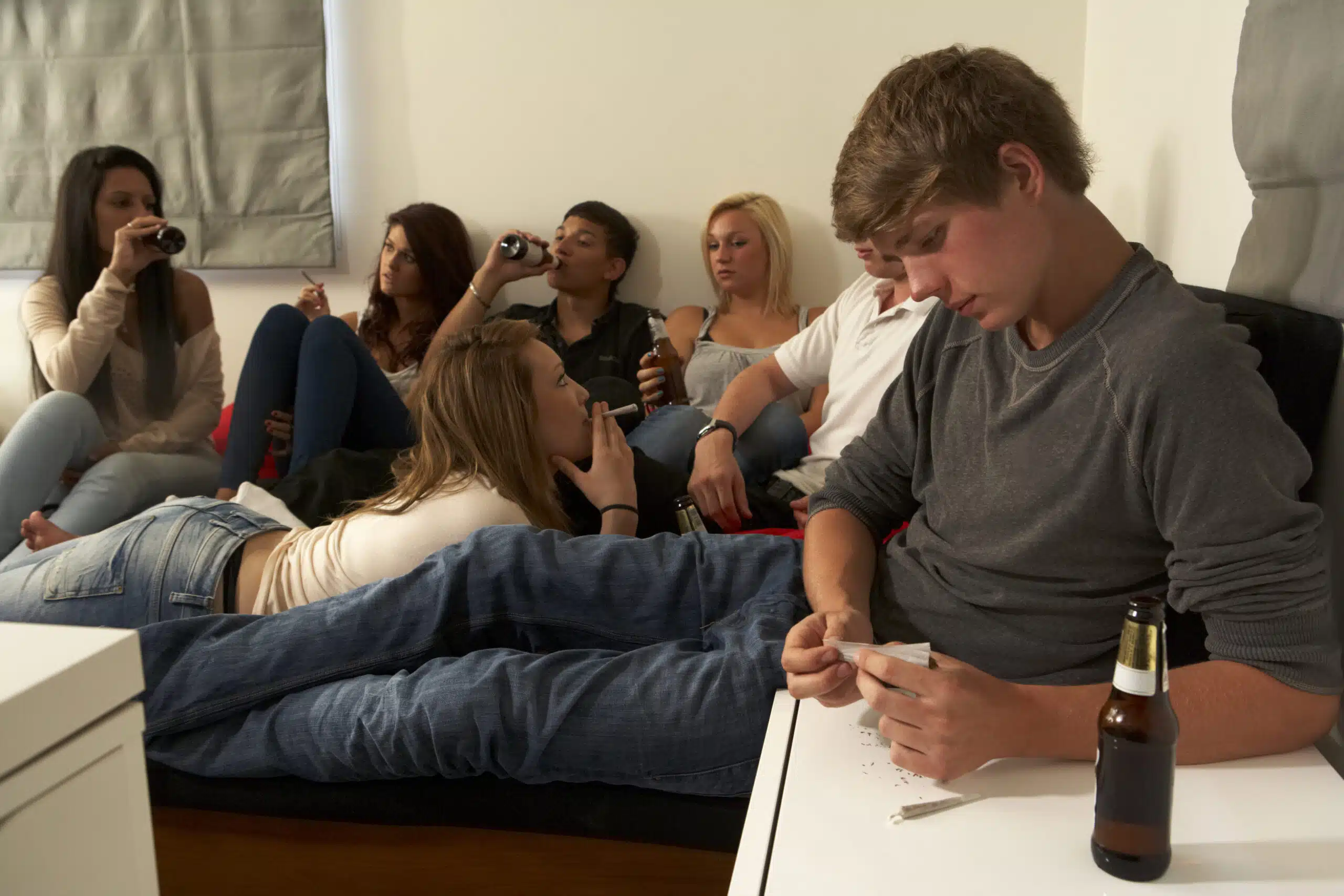
Shocking Correlations Between Sleep and Teen Mental Health
As much as most teens might disagree, a good night’s sleep is one of the most important things one can do to maintain healthy body function, including mental and physical health. During our waking hours, there are many things the body cannot do. Therefore, during sleep, your brain and other body systems conduct crucial activities that maintain your overall physical and emotional health. Sleep impacts the way we feel, think, look, and perform and has a significant effect on teen mental health. The hours of sleep we get each night significantly affects all aspects of our daily lives.
What Happens During Sleep?
Although we are asleep and don’t know it, our bodies work hard each night to help us maintain optimal physical and mental performance. Each night, our sleep patterns are divided into different stages of alternating “levels of sleep.” These levels of sleep are known as REM or rapid eye movement sleep and NREM, non-rapid eye movement sleep. Throughout the night, we alternate between stages, repeating the pattern approximately every 90 minutes. Each type of sleep is vital to the health of the body in a specific way.
Non-rapid eye movement sleep (NREM) comprises approximately 75% of sleep. This type of sleep begins as we fall asleep and continues through the first 90 minutes of the night. During this stage, the body performs several critical functions such as tissue growth and repair, the release of growth hormones vital for the growth and development of the teen body, and restoring energy.
The second stage of sleep, rapid eye movement sleep, encompasses the remaining 25% of sleeping hours. The first REM sleep cycle immediately follows the 90 minutes of NREM sleep. As noted above, you will alternate between REM and NREM sleep approximately every 90 minutes until the morning. It is important to mention that the duration of REM sleep may increase in length during the night to allow your body additional time for restoration and repair if needed. During this type of sleep, energy is provided to your brain and body. It is also the type of sleep where dreams occur.
Getting enough sleep is integral to proper body functions, especially for teens whose bodies and brains are still growing and developing. When we don’t get enough sleep, our brain is negatively impacted as it cannot process what we have learned or process the memories associated with learning. Other body functions suffer as well. Without sleep, our immunity is compromised, metabolism is affected, and symptoms of depression, seizures, high blood pressure, and migraines tend to worsen.
How Much Sleep Should Your Teen Get?
Everyone, whether teens or adults, needs sleep to maintain their overall health. If sleep is interrupted or cut short, our bodies cannot complete all the functions required for memory consolidation, muscle repair, and the release of hormones that regulate growth and appetite. After a restless night, we awake less prepared to make important decisions, concentrate, or fully engage in our work, social or academic activities.
Sleep is essential to kids of all ages. However, teens are at a critical time in their lives for learning and growth, making sleep exceptionally important for all aspects of their health. The National Sleep Foundation recommends the following sleep ranges for infants, children, teens, and adults.
- Newborns (0-3 months): 14-17 hours
- Infants (4-11 months): 12-15 hours
- Toddlers (1-2 years): 11-14 hours
- Preschoolers (3-5): 10-13 hours
- School-age children (6-13): 9-11 hours
- Teenagers (14-17): 8-10 hours
- Younger adults (18-25): 7-9 hours
- Adults (26-64): 7-9 hours
- Older adults (65+): 7-8 hours
Teens frequently operate on less than optimal sleep. Data from one study showed that only 15% of teens report getting 8 hours or more of sleep on a school night. There are many reasons for this, including homework, sports, extracurricular activities, and other desirable activities such as spending time with friends.
What Causes Sleep Deprivation in Teens?
We know they’re getting approximately 9 hours of sleep each night is ideal for teens; however, very few actually achieved this goal. A study conducted by the Centers for Disease Control and Prevention suggests that less than 9% of teens get enough sleep. Although higher rates of technology use, such as social media, video games, television, and the Internet, do affect teen sleep, there are indeed other causes of sleep deprivation in teens.
Typical examples include heavy homework loads, caffeine or nicotine use, excess stress, after-school activities (that push study and homework at times later into the evening), early start times at school, and too much light exposure that triggers their brains to stay awake when they should begin to unwind and fall asleep.
The Teen Mental Health Effects of Too Little Sleep
The physical health effects of sleep deprivation on teens may be far more evident than the detrimental mental health impacts too little sleep can cause. A recent study of nearly 5000 teens suggested that depression and anxiety symptoms were closely linked with sleep deprivation. Teens diagnosed with depression symptoms got an average of 3 1/2 hours less sleep each night than the control group in the study. Additionally, sleep deprivation during puberty (around age 15 ) dramatically increased the likelihood of mental health problems later in life.
As previously mentioned, sleep is crucial to brain and body function. Studies show that lack of restful sleep has an adverse effect on the brain’s ability to regulate emotion adequately. These same studies show that teens struggling with sleep deprivation responded with greater emotional instability to stressors when presented as part of the study. Similarly, sleep-deprived teens found stressful situations far more threatening than other study participants who were either more mature or not sleep deprived. Other studies show that sleep-deprived teens experience greater rates of depression and anxiety.
A 2015 study that examined the sleeping patterns and emotional consequences of lack of sleep on nearly 28,000 high school students indicated that for each hour of last rest, there was a 38% increase in the risk of feeling hopelessness or sadness. Data also showed a 58% increase in suicidal ideations, self-harm, or suicide attempts. Another similar study found that high school seniors were three times more likely to experience depression symptoms if they experienced excessive daytime sleepiness.
Another reason a good night’s sleep is crucial for team health is that sleep deprivation can dramatically increase the likelihood of substance abuse. Data from a study published in the journal of youth and adolescents suggest that disrupting the natural sleep cycle interferes with brain functions that regulate emotions, impulsivity, and reward. These are also the brain functions that notably impact teens’ abilities to make safe and effective judgments around drug and alcohol use and other risky behaviors.
Because their impulse control abilities are compromised, teens suffering from sleep deprivation tend to engage in risky behaviors in more significant numbers than teens without sleep deprivation. Data from the National Center on Addiction and Substance Abuse suggests that high school students with less than eight hours of sleep each night are significantly more likely to smoke marijuana, use alcohol, and become lifelong users of illicit drugs. Another survey of teens found that chronic sleep deprivation is linked to drunk driving, binge drinking, and unprotected sex.
How to Help Your Teen Get Better Sleep
Getting enough sleep is a challenge for adults and teens alike. Below are various ways to encourage healthy sleep patterns and provide guidelines to reduce the medical and mental health consequences of too little sleep.
Make sleep a priority
Sleep needs to be prioritized equally (or higher than) with the other hobbies your teen participates in. Without proper rest, they will not have the emotional or physical ability to participate successfully in many desired activities.
Help them understand there is no substitute for sleep
No pills, vitamins, or drinks can replace good sleep. Consuming caffeinated beverages close to bedtime can affect your teen’s ability to sleep.
Develop a sleep routine
Establish a sleeping schedule and stick to it, coming as close as you can on the weekends. This will help maintain their body’s natural rhythms and likely increase the health benefits of good sleep.
Establish (and maintain) an evening schedule
Limit what your teen eats or drinks within a few hours of bedtime. Also (if possible), limit the amount of exercise or physical activity they participate in during those hours. Encourage your teen to address their homework early in the evening instead of at the last minute to reduce the time spent on technology just before bed. Activities involving computers, televisions, laptops, ad other electronics can lead to excess stimulation, making falling asleep more difficult.
We all feel better after a good night’s sleep. Many studies support that getting enough sleep is crucial for physical and mental health. Poor or insufficient sleep has been proven to increase negative emotional responses to stressors (including day-to-day events and obligations) and decrease positive emotions. Although additional research is needed to understand the factors that lie at the roots of the connection between sleep and mental health, we know that getting enough sleep is essential to many brain and body functions, such as processing daily life events and regulating emotions and behaviors.
Sleep helps maintain cognitive skills, such as attention, learning, and memory; therefore, poor sleep can make it much more difficult for teens to cope with even minor stressors and impact their ability to perceive the world accurately. If you are worried about your teen’s mental health (whether from symptoms of sleep deprivation or another mental health concern) and would like to learn more about the ways our team at Beachside can help, contact a member of our admissions team today to learn more about our teen-focused programs.
https://pubmed.ncbi.nlm.nih.gov/25178930/
https://www.sciencedaily.com/releases/2010/06/100609083221.htm
https://pubmed.ncbi.nlm.nih.gov/25598438/
https://acamh.onlinelibrary.wiley.com/doi/full/10.1111/jcpp.13288
https://www.cdc.gov/pcd/issues/2014/14_0383.htm
https://www.sciencedaily.com/releases/2015/03/150325140212.htm
https://www.sleepfoundation.org/articles/what-happens-when-you-sleep
https://healthblog.uofmhealth.org/childrens-health/10-tips-to-help-your-teen-sleep-better




